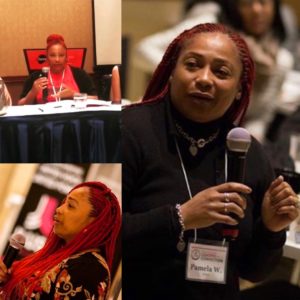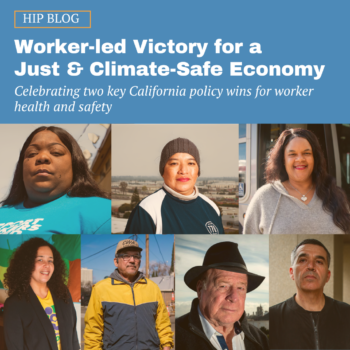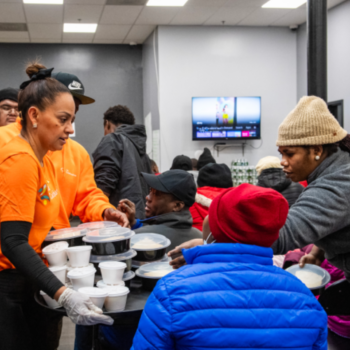| By Pamela Winn, Introduction by Kim Gilhuly |
We are kicking off a semi-regular series to place the human impact stories of our research and advocacy work front and center. In the Human Impact Stories Series (HISS!), we’ll thread together the narratives of folks’ experiences with the institutional practices and policies that greatly determine health.

Pamela Winn, organizer and JustLeadershipUSA Fellow
I met Pamela Winn through our Health Instead of Punishment work at HIP. Pamela was kind enough to tell her story as part of last year’s Women’s Gathering on Criminalization and Community Health Inequities (which we organized in collaboration with the Center for Community Change). The Gathering created a space for public health practitioners and formerly incarcerated women to build trust and explore how we could work together to end incarceration of women and girls. As a public health practitioner myself, I can say personally that the experience was transformative.
Thank you again, Pamela, for sharing your experience with us!
I was sentenced 78 months to serve at a federal prison for a white-collar crime. I left home a healthy single mother of two sons (14 and 16 years old), not ever experiencing any serious illnesses. I was a registered nurse who had achieved 3 secondary degrees. I was homeowner and also a successful business entrepreneur.
During my incarceration, I initially endured the stress of not knowing where my sons were because I had not been allowed a call the first three days I was taken. My sons had to care for themselves during my absence, as I lacked any familial or other social support, and I did not see them the entirety of my incarceration.
I was also six weeks pregnant. Anytime I had to be transported, I was chained at my ankles with another chain around my waist that bound my hands in front of my belly.
While shackled, attempting to step up into a van, I fell. A couple days later I begin spotting with streaks of blood, which I reported to the medical staff.
They informed me that they had literally “no” means of caring for me and would have to get approval from the US Marshals to take me to the ER. The turnaround time for approval ended up being 4 weeks. At that point, it was no longer an “emergency,” so I was turned away from the ER — I then required a second approval for an obstetrician, which took 4 more weeks. I ended up miscarrying at approximately 20 weeks without any formal or proper prenatal care.
To add insult to injury, I was assigned to a cell on a second floor and my request to be moved fell upon deaf ears causing me to have to climb steps daily. There was a fountain that provided brown water that I protested to the warden, who agreed to provide me with ice daily which did not occur. When I was miscarrying, I lay wet in blood, in the dark, curled up in excruciating pain until an officer made rounds. And I suffered the entire miscarriage shackled to the bed — I was told that the linen that contained my unborn child had been thrown in the trash.
I had no privacy, no counseling, nor any opportunity to grieve my miscarriage.
Then I was relocated to another facility where I was placed in solitary confinement for a month. Solitary is being locked in a 6’ by 9’ room with a bed, toilet, sink, and no window for 23 hours a day. Solitary is usually a means of punishment. In my case it was to keep me separated from other inmates because I was a federal inmate.
After 6 years, I was released diagnosed with high blood pressure related to my continuous physical stress along with a high sodium diet and depression caused by emotional distress. The additional stress of having my professional license revoked, the challenges of employment, housing, lack of insurance, little to no finances, the restrictions that come with being a convicted felon, and a woman compounded my state of health.
I left whole, I returned in pieces. Incarceration is a public health issue due to the social and physical determinants of discrimination, crowded conditions, income, and gender.

Pamela with her sons
Pamela Winn organizes formerly incarcerated women and allies with Women on the Rise in Atlanta, Georgia, where she is spearheading a campaign to close the Atlanta City Detention Center and instead put resources back into the community to support health instead of punishment.
She is a national leader and advocate in anti-shackling legislation, working in collaboration with other women who have experienced shackling while pregnant and advocates motivated to pass anti-shackling laws in their states. Together, they are developing a boilerplate anti-shackling bill for use in states without this legislation as well as a bill of rights for incarcerated pregnant women to serve as guidance in detention facilities.
Pamela also recently completed a Fellowship with the JustLeadershipUSA Leading With Conviction Program.
Pamela’s story, unfortunately, is more like the rule than an exception. To give just a glimpse into the social determinants of health she’s lifted up, here are some examples of the health impacts research and policy advocacy underway:
- Criminal justice policies that incarcerate parents of dependent children create long-term trauma and mental health effects for children and parents. Providing judges with alternatives to incarceration when they sentence parents can limit this family trauma.
- Incarceration decreases life expectancy due to exposure to overcrowding, poor access to mental and physical health care, increased risk of violence and injury, poor nutrition and a variety of other factors. Policy changes like California’s Proposition 47, which changes certain felonies into misdemeanors, has reduced thousands of people’s exposure to prison and jail as well as reducing the collateral consequences of having a felony conviction (our in-depth Prop 47 Health Impacts Assessment research evaluated the health and equity impacts of this reform).
- Shackling women before, during, and after pregnancy is harmful to their health and a risk to the pregnancy, as Pamela’s experience so heartbreakingly demonstrates. And while advocates are working across the country to change this with anti-shackling laws, it is by and large the norm in state correctional institutions.
As health equity advocates, we often know the stats — but hearing Pamela’s story once more reminds me why I do this work. We can’t allow our criminal justice “system” to continue using these practices and policies that harm mothers, daughters, sisters, fathers, sons, and brothers across our country.
Get Involved
- Advocates in Massachusetts, Louisiana, and Tennessee are working to pass bills to expand the use of alternatives to incarceration for people who are primary caretakers of dependent children. Contact Kim Gilhuly for more information on how to add your voice to these primary caretaker campaigns.
- In Michigan, we’re working with our partners to assess the health impacts of a bill that raises the age for youth being charged as adults from 17 to 18 years of age. Contact Celia Harris for more information on Michigan’s raise the age efforts.




